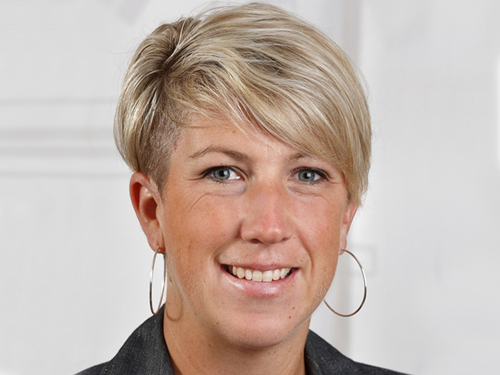In this issue we bring an exclusive interview with Dr Linnea Selegard, Material Engineer at Saab AB and Adjunct Senior Lecturer at Linköping University, and responsible for conducting joint research with Brazil in the field of materials.

Tell us about your professional experience and activities at LiU and Saab AB.
Linnea: I have a PhD in Molecular Surface Physics and Nanoscience from Linköping University. After my PhD I spent a year at a small spin-off company focused on development of planar LEDs. After this year I started at Saab by the end of 2014 as a Surface treatment engineer where my focus was on corrosion protection issues.
In 2017 my focus was instead shifted towards nanomaterials and research on how those materials could provide new functions into aeronautical materials.
Presently I am leading a group focused on research on materials and advanced manufacturing. We are mainly focused on new, functional composite materials, integration techniques and additive manufacturing.
My main research focus is on multifunctional materials with special focus on nanomaterials. I am also part time adjunct Senior Lecturer at Linköping University in the same research group as I did my PhD. I am doing research in the same area as I do at Saab. I´m also supervising PhD students and do teaching.
In the course of your career, have you faced challenges that you believe to have faced because you are a woman?
Linnea: Usually I do not face challenges but the scientific area where I am acting is male dominated and some times that becomes clear.
One thing that I commonly encounter when being at conferences and events for example is that persons that I meet is more focused on that I am a woman rather than focusing on my expertise.
Another thing, which is of course also person dependent but as a woman you are usually quieter and more cautious than your male colleagues and sometimes it could be difficult to get yourself heard in a group.
To overcome these situations, I usually do not pay that much of attention to it and try to switch focus to the technical discussions. Also, I remind myself to step out of my comfort zone and make sure to get my voice heard.
Sweden is a reference country with regard to gender equality. Do you see this in your area of expertise?
Linnea: Sweden is for sure a reference country when it comes to gender equality, we however still have a long way to go before it is equal. Quit many young women study on technical universities, however, in higher academic levels and positions there are still very few women. This is also the case in industry where there are few women in this area. There are, however goals set where industry partners aim at having at least a specified number of women in leading positions.
Based on your experience, how do you believe that new opportunities can be given to women in Sweden and Brazil?
Linnea: I put a lot of effort to attract young female researchers and engineers such as master students and PhD students. I think it is important that females working within technical areas get visible to attract more women.
How have you been working with Brazil?
Linnea: I have managed projects in collaboration between Sweden and Brazil in the area of novel materials for aeronautics. We have mainly been in in collaboration with UFABC but also with ITA through the endowed professor chair of Ragnar Larsson. In one finalized project we were focused on graphene as an additive in epoxy-based composites to provide electrical and mechanical reinforcement. We combined experimental studies with simulations and were able to show that the mechanical properties as well as the electrical conductivity was clearly improved giving an enhanced resistance against lightning strike damages. In another ongoing project we are studying graphene as an additive in thermoplastics to be used as a 3D-printing material.




